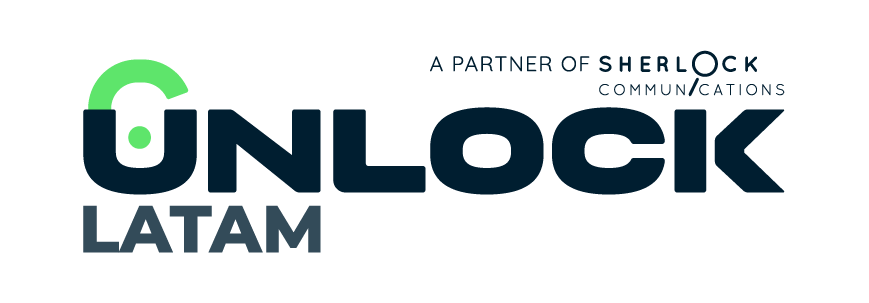How to use data and market intelligence to boost sales in Brazilian agribusiness
Brazil is one of the most dynamic and complex agricultural markets in the world. From soybeans to sugarcane, its agribusiness sector powers global supply chains and drives a major share of the country’s GDP. But selling into this market isn’t just about having a great product.
To boost sales in Brazilian agribusiness, companies need to go beyond guesswork. Real growth comes from understanding where the demand is, who the right buyers are, and what influences their decisions. This is where data and market intelligence become essential.
Why Brazilian Agribusiness Demands a Data-Driven Sales Approach
Brazil’s agriculture sector spans multiple regions, climates, and production models. Each one comes with its own timing, needs, and buying behavior. A data-driven approach allows sellers to adapt their strategy to the unique patterns of each segment.
In a market this large, it’s not sustainable to rely on assumptions. Data reveals what crops are expanding, which inputs are in demand, and where supply gaps exist. The companies that grow fastest are those that base decisions on hard evidence, not just experience.
Understanding the Agribusiness Sales Landscape in Brazil
Selling into Brazilian agribusiness often means working with cooperatives, family-owned farms, large-scale producers, and a growing network of agri-tech startups. Each player has different purchase cycles, financing conditions, and trust dynamics.
To succeed, you need to understand how influence and decision-making work in rural Brazil. Sales conversations often move slowly and depend heavily on relationships. Local context matters just as much as price or performance when closing deals.
The Role of Market Intelligence in Identifying High-Value Opportunities

Market intelligence helps companies focus their efforts where they’ll get the most return. By tracking production trends, regional performance, and government policy shifts, you can anticipate demand and act before competitors do.
For example, if corn production is rising in a specific state due to export incentives, there’s likely to be increased demand for seeds, fertilizers, and machinery. With this kind of insight, your sales team isn’t reacting to the market, they’re leading it.
Leveraging Data to Segment and Prioritize Leads
Not all leads are equal, especially in agribusiness. Data helps you divide your prospect list based on relevant variables like crop type, farm size, technology adoption, and regional growth trends. This improves efficiency and targeting.
Prioritized segmentation also supports smarter sales planning. Instead of spreading your team thin, you focus on the areas where there’s proven potential. The result is more meaningful conversations with buyers who are ready to move forward.
Building Personalized Messaging Based on Regional Intelligence
A farmer in Mato Grosso and a cooperative buyer in Paraná may grow the same crop, but they likely face different challenges. That’s why personalized messaging based on regional realities is critical for connecting with prospects in a meaningful way.
By using data on local crop calendars, climate conditions, or recent supply issues, your outreach becomes more relevant. When prospects see that you understand their specific situation, they’re far more likely to engage and trust your solution.
Tools and Platforms That Can Power Your Sales Strategy
Sales success in agribusiness today depends on having the right tools to turn information into action. The best strategies combine agri-specific insights with modern sales technology to reach and convert the right leads faster.
Let’s break down three types of platforms that can make a real difference in how you build and manage your pipeline in Brazil’s agricultural sector.
Agri-Specific Data Platforms for Market Visibility
Platforms like DATAGRO, CEPEA, and IBGE offer production forecasts, price trends, and crop performance by region. These insights help you time your outreach and prioritize the areas with real commercial potential.
CRM and Sales Intelligence Tools to Optimize Outreach
Using tools like HubSpot, Salesforce, or Apollo allows you to centralize contact data, monitor engagement, and personalize follow-ups. This makes your outreach more strategic and increases conversion rates across segments.
Prospecting and Localized Communication Platforms
In Brazil, WhatsApp Business, RD Station, and similar tools enable faster, more personal communication with leads. They support native-language messaging and preferred channels that improve response and trust.
How Local Partnerships Can Enrich Your Market Knowledge

Even the best tools have limits. To fully understand the nuances of the Brazilian agribusiness market, you often need insight that only local partners can provide. They can tell you what’s working on the ground, what’s shifting, and how to adjust fast.
Whether it’s a trusted agronomist, a regional distributor, or an embedded sales agent, these connections give you a layer of credibility and context that’s hard to replicate. They turn data into relationships and relationships into revenue.
Measuring Impact: From Data to ROI in Agribusiness Sales
Once your data-driven strategy is in place, tracking its performance is key. You should measure how well your segmentation is working, whether your personalized messages are converting, and which channels are delivering the best ROI.
Useful metrics include lead-to-meeting ratio, cost per qualified lead, and time to close. Over time, this helps you refine your approach, double down on what’s working, and prove the value of data-informed decision-making across your sales team.
Ready to Boost Sales in Brazilian Agribusiness? Let’s Talk
Unlock LatAm helps international companies connect with the right buyers and close more deals in Brazil’s complex agribusiness sector. Let’s talk about how data and local insight can turn your goals into results.

Your Trusted Partner in LATAM Expansion
From market research to legal compliance, we guide your business every step of the way.
